If you’re considering buying an RV or a tiny home, you may be wondering which one is the best option for you. Both have their pros and cons, and it can be tough to decide which is the right choice for your lifestyle. In this blog post, we will compare and contrast these two types of homes so that you can make an informed decision!
Table of Contents
RV vs. Tiny House Property Values
When it comes to resale value, RVs typically hold their value better than tiny homes. This is because there is a larger market for used RVs than there is for used tiny homes. Additionally, RVs can be more easily transported and therefore may be more appealing to buyers. However, this does not mean that tiny homes cannot appreciate in value – they can, but it may take longer to find a buyer willing to pay the asking price.
Another key difference between RVs and tiny houses is that RVs are built on chassis from manufacturers like Thor or Winnebago, while most tiny houses are built on trailers from companies such as Tumbleweed or Escape Traveler. This means that RVs are often subject to more regulations than tiny homes, as they are classified as vehicles. Tiny homes, on the other hand, may be subject to different rules and regulations depending on the state or municipality in which they are located. [1]
RVs also tend to be more expensive than tiny homes. This is because RVs are typically outfitted with more amenities, such as kitchens and bathrooms, which can add to the price tag. Additionally, RVs require regular maintenance and upkeep, which can also drive up the cost. Tiny homes, on the other hand, are often less expensive to maintain since they generally have fewer moving parts.
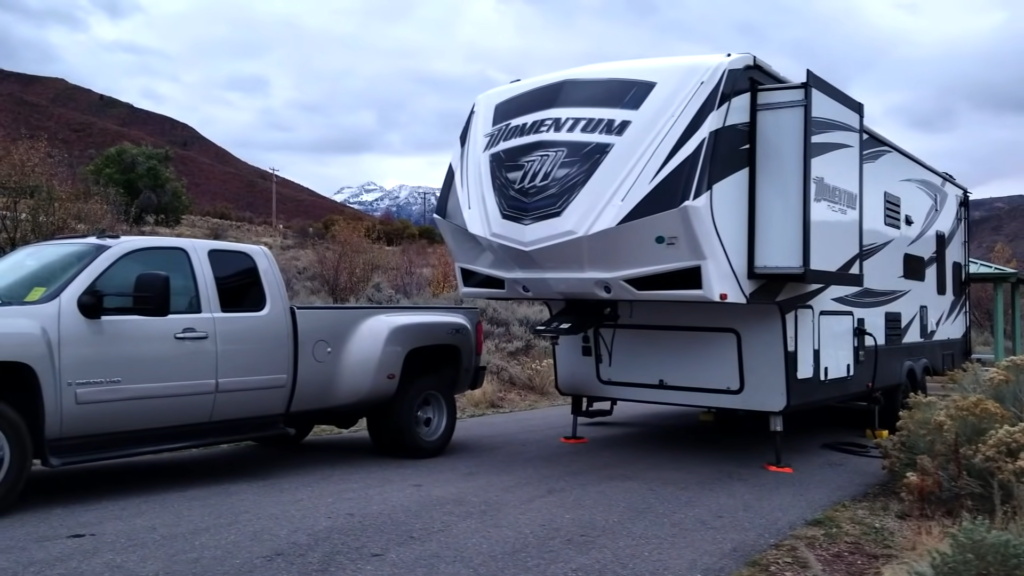
RV vs. Tiny House Aesthetic
RVs and tiny homes both have a unique aesthetic. RVs are often brightly colored and decorated with decals, while tiny homes tend to be more subdued in color and style. This is largely due to the fact that RVs are meant to be seen when traveling down the open road, while tiny homes are designed to blend in with their surroundings.
When it comes to interior design, RVs typically have more of a “campy” feel, while tiny homes often go for a more modern look. This is because RVs are meant to be vacation homes, while tiny homes are intended as full-time residences. Therefore, RV interiors often reflect this with fun colors and patterns, while tiny home interiors usually opt for a more sophisticated aesthetic.
RVs also tend to be more “gadget heavy” than tiny homes. This is because RVs are designed for travelers who want all the comforts of home while on the road. Therefore, they often come equipped with features like TVs, stereos, and satellite dishes. Tiny homes, on the other hand, generally have fewer gadgets and gizmos since their occupants are not as concerned with entertainment while on the go.
Finally, RVs typically have more storage space than tiny homes. This is because they are designed to accommodate all of your belongings when you travel from place to place. Tiny homes, however, often have limited storage due to their smaller size. Therefore, if you are someone who likes to bring a lot of stuff with you when you travel, an RV might be the better option.
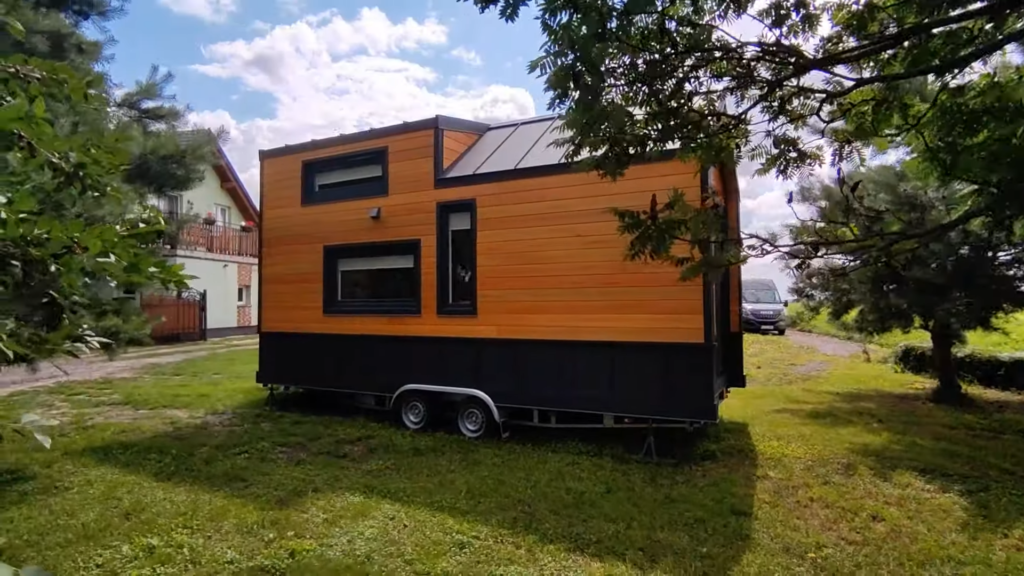
RV vs. Tiny House Customizability
RVs and tiny homes can both be customized to fit your needs, but RVs tend to have more options when it comes to customization. This is because RVs are manufactured by companies that specialize in recreation vehicles, while tiny homes are often built by individuals or small businesses. Therefore, there are more “off the shelf” options available for RVs than there are for tiny homes.
However, this does not mean that tiny homes cannot be customized – they can. In fact, many people who choose to live in tiny homes do so because they want a space that is specifically designed for their needs. Tiny homes can be outfitted with custom features like lofted bedrooms, home offices, and even saunas. However, these customizations can often add to the cost of a tiny home.
RVs also have the advantage of being able to be towed behind a vehicle. This means that, if you decide to move, you can take your RV with you. Tiny homes, on the other hand, are not as mobile since they are typically built on foundations. Therefore, if you want to move your tiny home, you will likely need to hire a professional to do it for you.
Finally, RVs come in a wide range of prices, while tiny homes tend to be more expensive. This is because RVs are mass-produced by companies that can afford to sell them at lower prices. Tiny homes, on the other hand, are often handmade and can therefore be more expensive. However, this does not mean that tiny homes are not worth the investment – many people feel that they are.
RV vs. Tiny House Amount of Space
One of the biggest differences between RVs and tiny homes is the amount of space that they have. RVs can range in size from small campers to large “fifth wheels” that are over 40 feet long.
This difference in size can be a major factor when deciding which type of home is right for you. If you like to travel and want a home that can easily be moved from place to place, an RV might be the better option. If you want to live in a house permanently but don’t want the burden of constant upkeep, then a tiny home might be right for you.
It is also important to consider how you will be using the space in your home. RVs often have multiple rooms that can be used for different purposes, while tiny homes typically have one “open concept” floor plan. Therefore, if you need a lot of space for entertaining or working from home, an RV might be a better option.
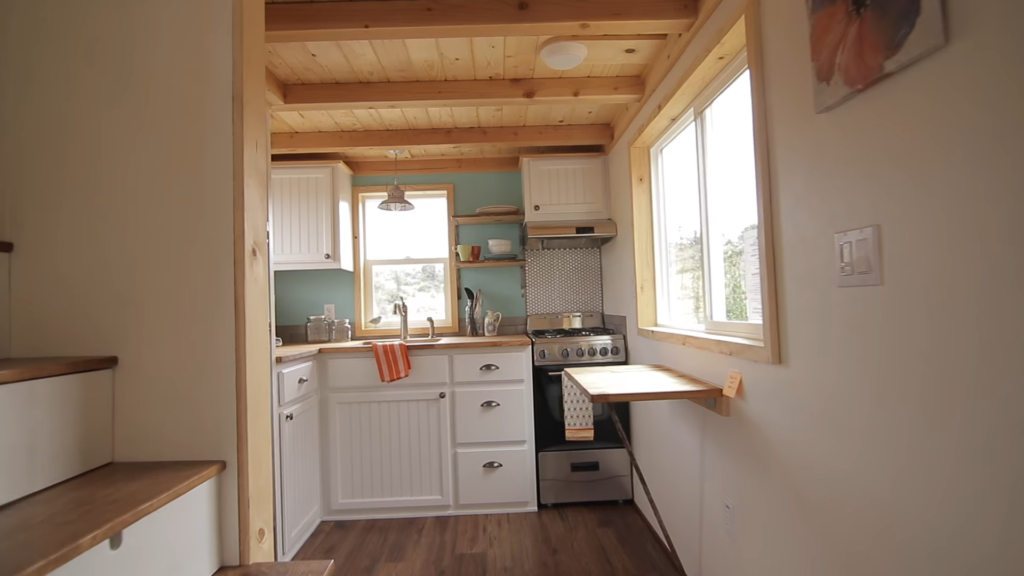
Finally, it is important to consider the climate in which you live when deciding between an RV and a tiny home. RVs are not well-insulated and can be very hot or cold depending on the weather outside.
RV vs. Tiny House Convenience
Another factor to consider when choosing between an RV and a tiny home is convenience. RVs are designed for people who want to travel and see the country. This implies that they are frequently self-contained in terms of décor, offering complete kitchens, bathrooms, and bedrooms. However, tiny homes generally do not have these characteristics; the majority of people who reside in little houses use public spaces such as restrooms and kitchens.
If you are someone who likes to be able to move around easily, an RV might be the better option. However, if you want a permanent residence that is close to conveniences like grocery stores and restaurants, a tiny home could be the way to go.
It is also important to consider how much work you want to put into your home. RVs often require a lot of upkeep and maintenance, while tiny homes are typically much easier to care for.
Finally, it is important to consider the cost of ownership when deciding between an RV and a tiny home. Although RVs can be expensive, tiny homes are often more affordable in the long run. So, if you’re looking to save some money, a tiny home might be right for you.
The Similarities Between RVs and Tiny Houses
Though there are some major differences between RVs and tiny homes, there are also some similarities. Both types of homes can be very comfortable and stylish, and both can be great places to live.
This means that you can take them with you when you travel or move to a new location. Additionally, both types of homes can be towed behind a vehicle, making them easy to transport.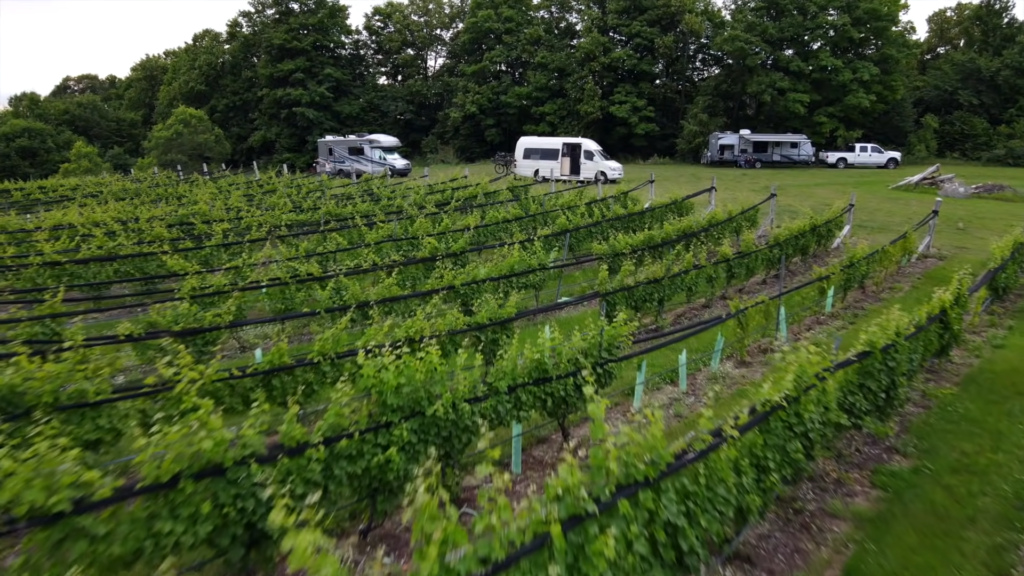
Another similarity between RVs and tiny homes is that they are both relatively small. This means that they are often easier to maintain than larger homes, and they can be more energy-efficient. Additionally, both types of homes typically have fewer rooms than traditional houses, which can make them more affordable.
Finally, both RVs and tiny homes can be customized to fit your specific needs and style. There are a variety of floor plans and designs available for both types of homes, so you can find the perfect one for you. Additionally, you can add personal touches to make your home unique, whether it is an RV or a tiny home.
The Differences Between a Tiny Home and RV
Though there are some similarities between RVs and tiny homes, there are also some major differences. The biggest difference is that RVs are designed for people who want to travel, while tiny homes are typically permanent residences. This means that RVs often have features like kitchens, bathrooms, and bedrooms that are all self-contained. Tiny homes, on the other hand, typically do not have these features – most people who live in tiny homes use shared facilities like bathrooms and kitchens.
Another difference between RVs and tiny homes is the cost of ownership. RVs can be very expensive to buy and maintain, while tiny homes are typically more affordable. Therefore, if you are on a budget, a tiny home might be the better option.
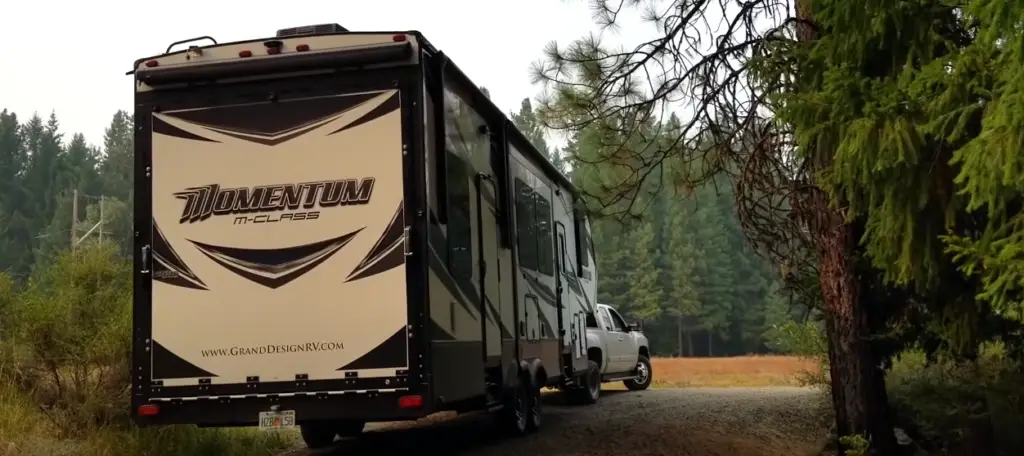
Finally, it is important to consider the amount of work you want to put into your home. RVs often require a lot of upkeep and maintenance, while tiny homes are typically much easier to care for. If you do not want to spend a lot of time and money on maintaining your home, a tiny home could be the right choice for you. [3]
Why Would You Live in a Tiny House over an RV?
There are several reasons why someone may choose to reside in a tiny house rather than an RV. One of the benefits of owning a tiny home is that they are often cheaper than RVs, and require less upkeep. Additionally, people who live in tiny homes generally do so permanently, while those with RVs typically travel.
If you’re looking for a dwelling that is easy to take care of, a small home could be the perfect solution for you. If you want to travel and explore without being tied down, an RV is the best option. Whatever option you go with, RVs and tiny homes may be fantastic homes.Why Would You Live in an RV over a Tiny House?
There are a number of reasons why someone might choose to live in an RV over a tiny home. RVs are often more expensive than tiny homes, but they can be a good option for people who want to travel. Additionally, RVs typically have more features than tiny homes, like kitchens and bathrooms.
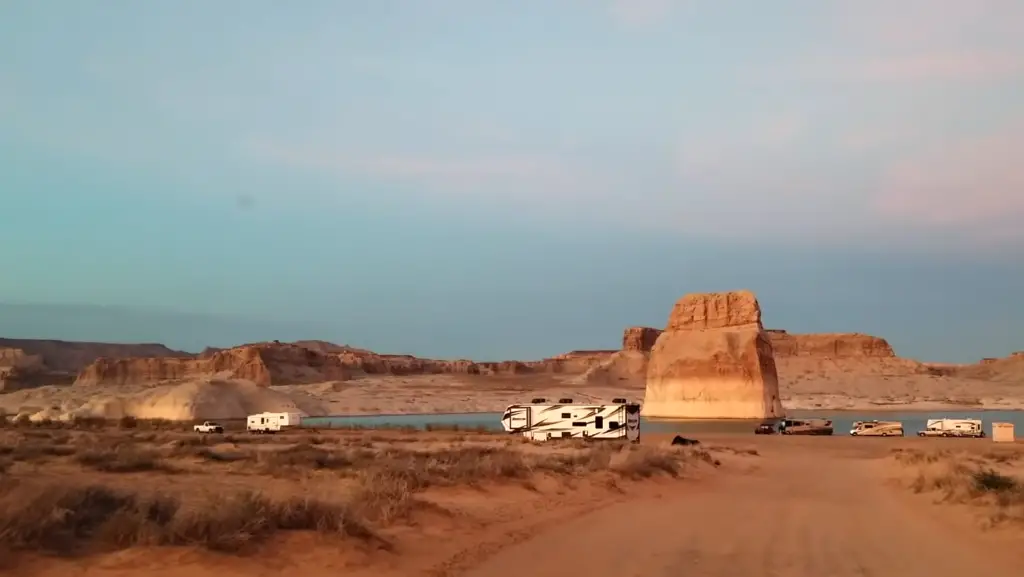
It’s critical to consider your unique requirements and budget when choosing between a recreational vehicle (RV) and a tiny house. If you’re itching to travel and explore different areas, an RV could be the best mode of transportation for you. For most people, however, a tiny home would be ideal for a short-term stay. If you want to live in a permanent place that is simple to maintain, a little house might be the best option for you. Ultimately, both RVs and tiny homes can make great residences.
Deciding What Works Best for You
RVs and tiny homes both have a lot to offer, so it is important to decide what works best for you. Consider your needs, budget, and lifestyle when making your decision. If you want a low-maintenance house that you can live in for the rest of your life, a tiny house might be ideal. However, if you want the flexibility to travel and see the world, an RV could be a fantastic alternative.
FAQ
Is it better to live in a tiny house or an RV?
It depends on your specific needs and budget. Tiny homes are typically more affordable than RVs, and they require less work to maintain. Additionally, tiny homes can be permanent residences, while RVs are designed for people who want to travel. If you are trying to decide between an RV and a tiny home, it is important to consider your specific needs and budget.
What are the pros and cons of living in a tiny house?
Some of the pros of living in a tiny house include being more affordable than traditional homes and requiring less work to maintain. Some of the cons of living in a tiny house include not having as many features as traditional homes and being permanently attached to one location.
What are the pros and cons of living in an RV?
Some of the pros of living in an RV include being able to travel and explore different areas. Some of the cons of living in an RV include higher costs than traditional homes and more required maintenance. It is crucial to consider the advantages and disadvantages of RV living before making a permanent commitment. [5]
What are some things to consider when deciding between a tiny house and an RV?
Some things you may want to consider when deciding between a tiny house and an RV include your budget, how much work you want to put into maintaining your home, and whether or not you want to be able to travel. If you want a permanent residence that is easy to care for, a tiny home could be the right choice for you. However, if you want the freedom to travel and explore, an RV might be the best option. No matter what you decide, both RVs and tiny homes can be great places to live.
Is a tiny house bigger than an RV?
No, a tiny house is not necessarily bigger than an RV. RVs are designed for people who want to travel, so they often have more features than tiny homes. However, this does not mean that all RVs are bigger than all tiny homes. It depends on the specific model of the RV or tiny home.
Additionally, you may be able to attach a tiny home to an RV, which would give you the best of both worlds. You would have the features of an RV, like a kitchen and bathroom, but you would also have a permanent residence that is easy to maintain.
If you’re looking to decide between an RV and a tiny home, think about your specific requirements and budget first. If you long for the open road and an escape from traditional travel, an RV might be perfect for you. However, if you are searching for a long-term house that is simple to maintain, a tiny home could be the answer. Whether you choose an RV or a tiny home, both come with advantages. [6]
What’s the difference between a tiny home and a travel trailer?
A travel trailer is a type of RV. RVs are designed for people who want to travel, so they often have more features than tiny homes.
Tiny homes are typically more affordable than RVs, and they require less work to maintain. Additionally, tiny homes can be permanent residences, while RVs are designed for people who want to travel. Deciding to choose a tiny home over a more traditional vehicle can be difficult. It’s important to think about what your specific needs are and what you can afford.
Where In the US Can I live in a tiny house?
There is no one answer to this question since tiny homes are not regulated by the government. Some places that allow tiny homes include California, Florida, and Colorado.
Deciding to live in a tiny house or RV is a personal choice. Consider your needs, budget, and lifestyle when making your decision. If you’re looking for a long-term home that won’t need much upkeep, a tiny house may be the answer. However, if you want the flexibility to travel and explore various locations, an RV may be the finest alternative. Whatever you choose, RVs and tiny homes may be excellent places to dwell. [7]
Are tiny homes still popular?
Yes, tiny homes are still popular. In recent years, there has been an increase in the number of people who are downsizing and choosing to live in tiny homes. This is likely due to the fact that tiny homes are more affordable than traditional homes and require less work to maintain. If you are considering making the switch to a tiny home, know that you are not alone!
If you’re trying to decide between an RV and a tiny home, it is important to consider your specific needs and budget. Some things you may want to take into account include how much work you want to put into maintaining your home and whether or not you want to be able to travel. Both RVs and tiny homes have their pros and cons, so make your decision based on your specific needs and wants.
Useful Video: TINY HOME VS RV | Which would you choose?
Conclusion
So, what’s the difference between an RV and a tiny home? Size is one major distinction – RVs are typically larger than tiny homes. But there are also some functional differences. For example, RVs usually have a kitchen, bathroom, and sleeping area inside them, while tiny homes often don’t have these amenities. It really depends on your needs and preferences as to which option would be better for you. If you want more flexibility and mobility, go with an RV. If you want a more minimalist lifestyle and don’t mind sacrificing certain conveniences, go with a tiny home!
References
- https://rvpioneers.com/rv-model-guides/thor-vs-winnebago/
- https://www.cnbc.com/select/should-you-finance-rv-or-tiny-home/
- https://www.rewildhomes.com/blog/2019/3/7/whats-the-difference-between-an-rv-and-a-tiny-home
- https://www.realestate.com.au/advice/pros-cons-living-in-a-tiny-home/
- https://thehomethatroams.com/blog/pros-and-cons-of-rv-living/
- https://happiestcamper.com/tiny-house-vs-rv/
- https://www.businessinsider.com/tiny-home-most-popular-us-states-2020-6

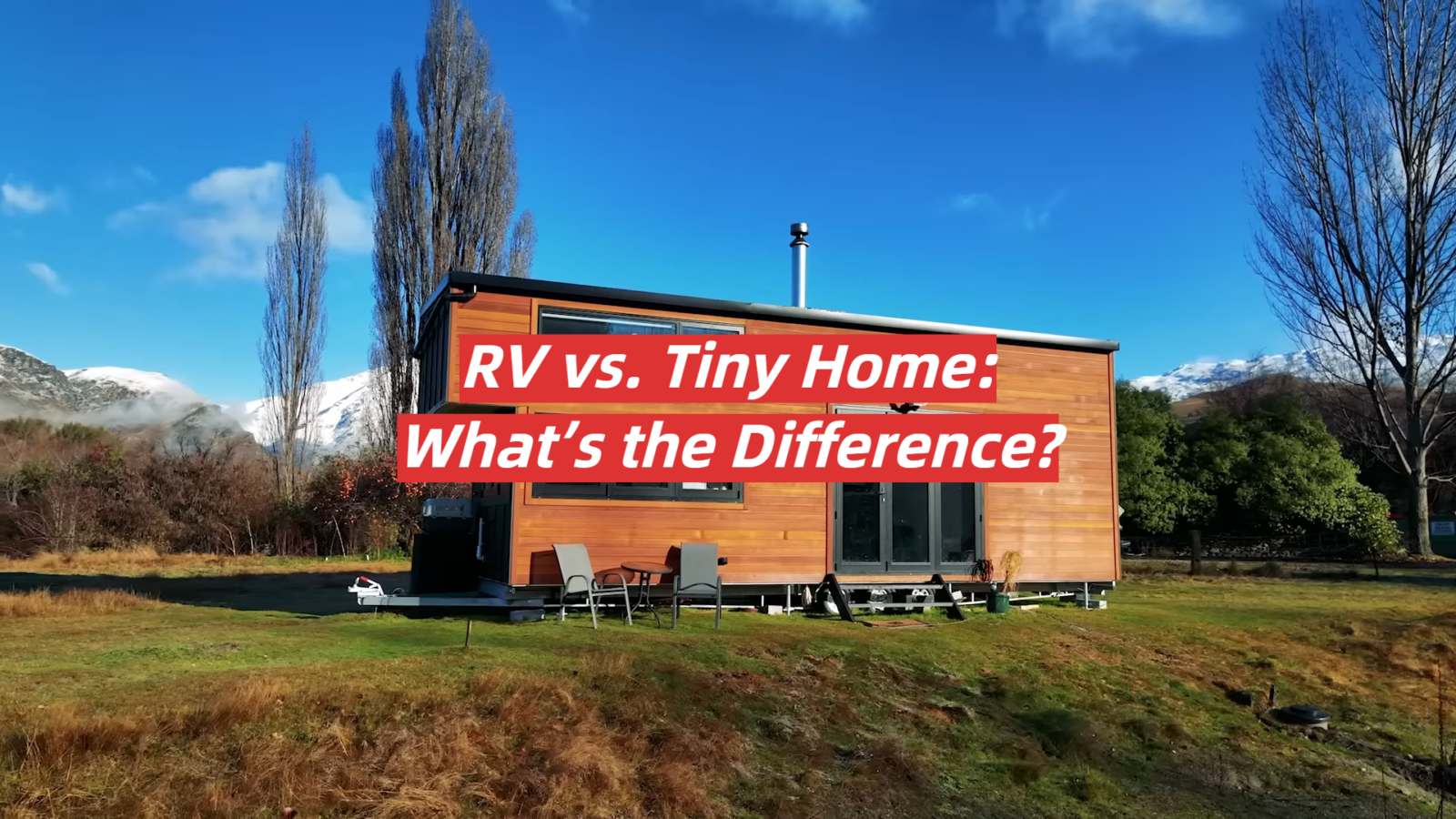
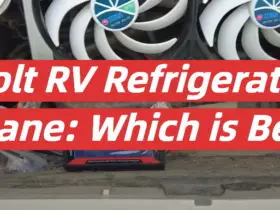

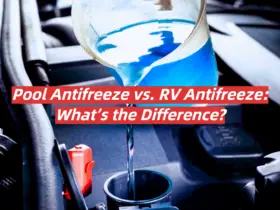
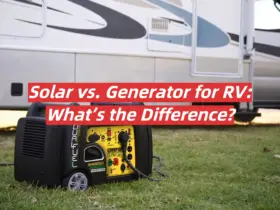
Leave a Reply